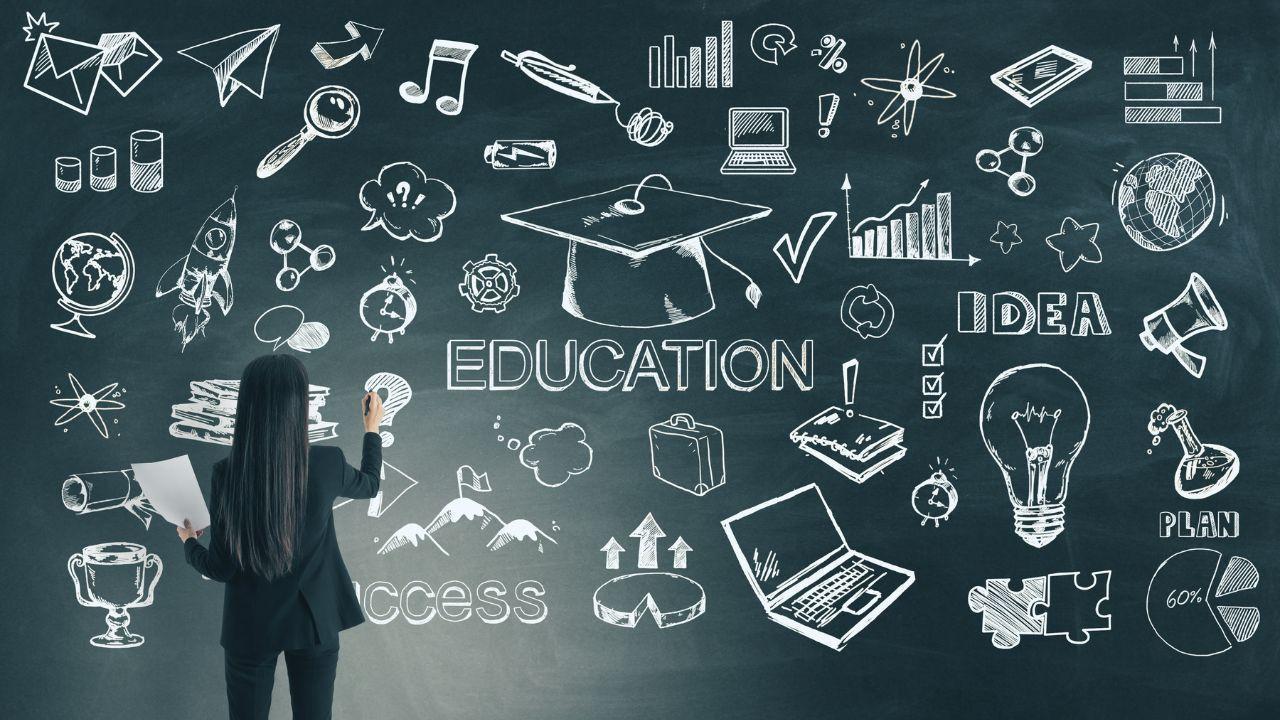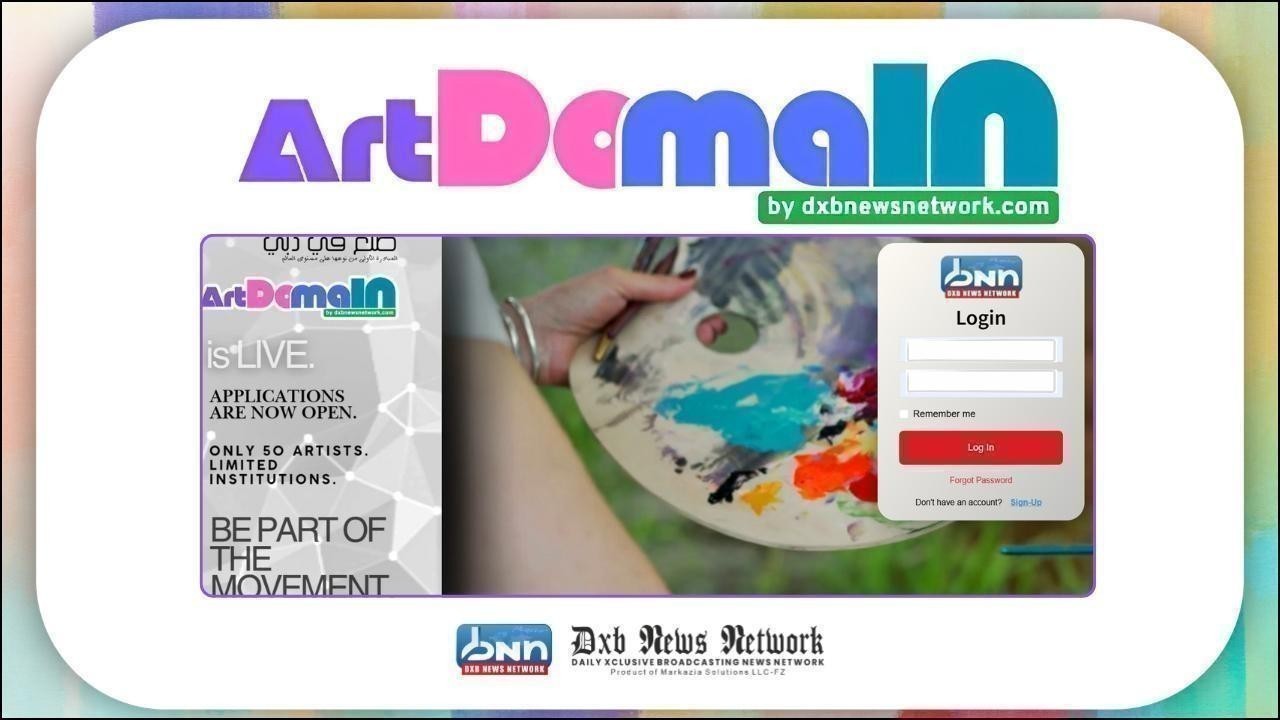
Post by : Zayd Kamal
In recent years, the education system has undergone a profound transformation, largely driven by the surge of EdTech platforms. These digital tools are revolutionizing the way we access knowledge, offering new ways to engage with content, connect with teachers, and learn at our own pace. From interactive learning apps to virtual classrooms, EdTech has reshaped education. In this article, we will explore how these technologies are changing the way we learn and the immense impact they have on students, educators, and institutions alike.
EdTech platforms are digital tools designed to enhance the learning process. These platforms incorporate a variety of features, such as online courses, multimedia resources, interactive simulations, and even AI-powered personalized learning experiences. They can be used in a traditional classroom setting, or in fully remote or hybrid learning environments.
The rise of these platforms has made learning more accessible, flexible, and engaging. They allow students to learn at their own pace, collaborate with peers across the globe, and access a wealth of resources that were once limited to physical textbooks or classrooms.
One of the most exciting features of EdTech platforms is their ability to offer personalized learning experiences. Traditionally, students in a classroom had to follow a one-size-fits-all approach to education, often struggling to keep up with the pace or missing out on crucial concepts.
With the integration of AI and adaptive learning technologies, these platforms now offer tailored learning paths that cater to each student’s unique needs. For example, platforms like Khan Academy and Duolingo adjust lessons and exercises based on a student’s performance, ensuring they progress at an optimal pace. This personalized approach helps students to master topics more effectively and boosts their confidence by allowing them to focus on areas where they need improvement.
Another significant benefit of EdTech platforms is the flexibility they provide. Unlike traditional education models that are confined to specific schedules, these platforms allow students to access learning materials anytime and from anywhere. Whether it’s a full course on Coursera or a quick tutorial on YouTube, learners can fit their studies into their busy schedules.
This level of accessibility is a game-changer, particularly for adult learners and working professionals who may not have the time or resources to attend traditional classes. It also helps bridge the educational gap for students in remote areas or those facing disabilities, allowing them to access quality education that would otherwise be out of reach.
Gone are the days of monotonous lectures and passive note-taking. These tools are designed to make learning more engaging by incorporating interactive elements, such as quizzes, simulations, videos, and games. These features encourage active participation, making learning enjoyable and memorable.
For instance, platforms like Kahoot! and Quizlet use gamification to turn mundane exercises into fun, competitive challenges. These interactive tools not only make learning more engaging but also enhance retention by involving students in the learning process rather than just passive consumption.

In the past, learning was often a solitary activity, with limited opportunities for students to collaborate or communicate with peers outside of their local classrooms. EdTech is changing that by enabling global collaboration. Tools like Google Classroom, Microsoft Teams, and Slack allow students to work together on group projects, discuss ideas, and share resources in real-time.
Moreover, these platforms connect students with a diverse range of perspectives, fostering global learning communities. Students can collaborate with peers from different cultures, backgrounds, and countries, which enhances their understanding of the world and broadens their educational experiences.
Traditional assessments often focus on memorization and one-time tests, but EdTech platforms are introducing innovative ways to evaluate student progress. Many tools use data analytics to track a student’s performance over time, offering real-time feedback and insights. This allows educators to identify learning gaps and intervene early to support struggling students.
Additionally, digital assessments such as interactive projects, online portfolios, and peer evaluations provide a more holistic view of a student’s abilities. Platforms like Edmodo and Moodle offer a variety of assessment methods that go beyond multiple-choice questions, encouraging critical thinking and problem-solving.
As technology continues to advance, the future of EdTech platforms looks promising. Emerging trends like virtual reality (VR) and augmented reality (AR) are expected to further revolutionize the way we learn. Imagine being able to explore historical events in 3D, take virtual field trips, or conduct science experiments in a virtual lab. These immersive technologies will make learning even more interactive and hands-on.
Additionally, the integration of artificial intelligence (AI) will further enhance personalized learning experiences. AI-powered tutors and chatbots will provide students with instant assistance, while data-driven analytics will help educators create more effective teaching strategies.
In recent years, the education system has been greatly influenced by the rise of EdTech platforms, which are transforming the way we learn. These digital tools offer a variety of features such as online courses, interactive simulations, and personalized learning experiences. The flexibility and accessibility of these platforms allow students to learn anytime and anywhere, making education more inclusive and adaptable to individual needs. By integrating AI, these platforms provide personalized learning paths, helping students progress at their own pace and focus on areas where they need improvement.
EdTech also promotes interactive and engaging learning through quizzes, games, and simulations, enhancing participation and retention. Furthermore, it fosters global collaboration, enabling students to work together across borders, exchange ideas, and share resources. Traditional assessments are evolving with digital tools that use data analytics to provide real-time feedback, improving student support. Looking ahead, emerging technologies like VR, AR, and AI will continue to shape the future of education, making learning even more immersive and effective.
Disclaimer: This article is brought to you by dxb news network.
#trending #latest #EdTech #EducationalTechnology #PersonalizedLearning #OnlineLearning #InteractiveEducation #GlobalCollaboration #FutureOfLearning #AIInEducation #FlexibleLearning #DigitalEducation #EdTechRevolution #LearningAnywhere #TechInEducation #InnovativeLearning #VirtualLearning #breakingnews #worldnews #headlines #topstories #globalUpdate #dxbnewsnetwork #dxbnews #dxbdnn #dxbnewsnetworkdnn #bestnewschanneldubai #bestnewschannelUAE #bestnewschannelabudhabi #bestnewschannelajman #bestnewschannelofdubai #popularnewschanneldubai










Sheikh Mansour Arrives in Kuwait to Boost UAE-Kuwait Relations
Sheikh Mansour arrives in Kuwait for an official visit to meet the Emir, aiming to strengthen UAE-Ku

Story :The Merchant of Manchester - by Dr Amrinder Pal Singh
Story of loss, Kindness, Betrayal… and Legacy

Rashid Al Obad Appointed Director General of Shams
Sheikh Sultan issues Emiri Decree appointing Rashid Al Obad as Director General of Sharjah Media Cit

Dubai’s Government Best Practices Series 2025 Highlights Innovation
The Government Best Practices Series 2025 in Dubai focused on government innovation, digital service

Dubai Hosts GenAI Masterclass for Future Family Leaders
Dubai Centre for Family Businesses held a GenAI masterclass to train 24 young leaders in using AI fo

ArtDomain by DXB News Network Opens to Strong Global Response — Applications Begin for A50 and The Art Guild.
ArtDomain by DXB News Network Opens to Strong Global Response — Applications Begin for A50 and The A

Dembele's Goal Gives PSG a 1-0 Win Over Arsenal in Semi-final
Ousmane Dembele scores early to give PSG a 1-0 win over Arsenal in their Champions League semi-final